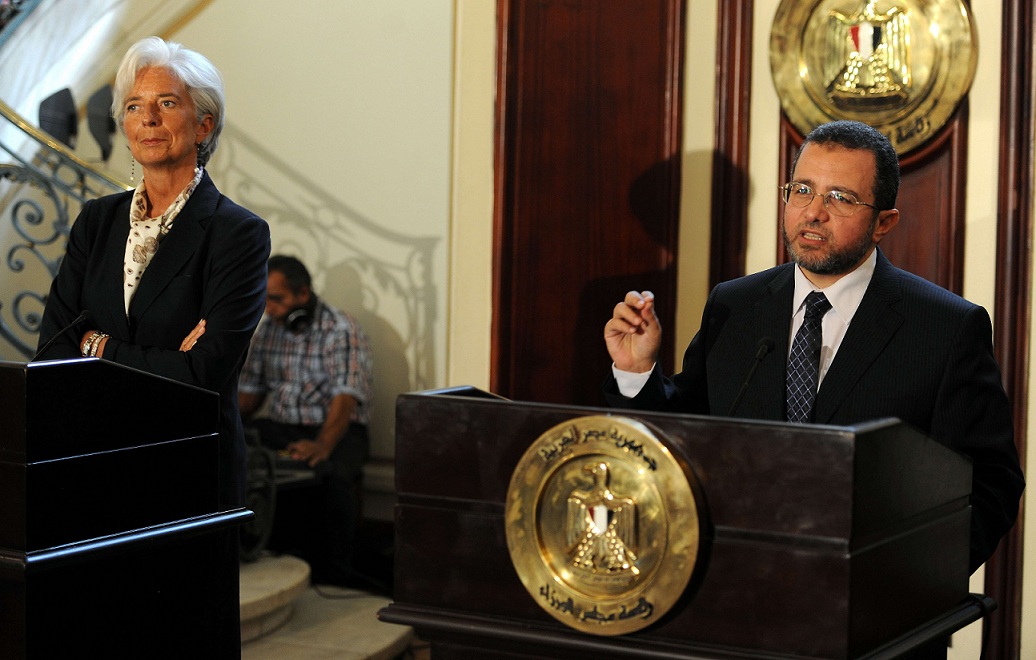The IMF said that the first and second reviews were delayed due to policy slippages and a return to a fixed exchange rate in February 2023, which undermined the credibility of Egypt’s announced shift to a flexible regime. This reversal led to foreign exchange shortages, inflationary pressures, and a constrained import market, hampering growth.
Moreover, the report indicated that delays in adjusting monetary policy to rising inflation exacerbated the situation, while continued heavy investment in national projects further strained the economy. External pressures from the conflict in Gaza and disruptions in the Red Sea contributed to widening Egypt’s financing gap.
According to the IMF findings, to address these issues, the Egyptian government has committed to a series of measures to restore macroeconomic stability and strengthen investor confidence. The unification of the foreign exchange rate in early March was a significant step, supported by tighter monetary policy, a flexible exchange rate regime, and a liberalised foreign exchange system. Additionally, the government plans substantial fiscal consolidation, including raising gasoline prices to align with the automatic fuel price mechanism, and implementing a new social protection package worth EGP 180bn for FY2024/25 to support vulnerable groups.
The report says that the significant investment deal with Abu Dhabi Developmental Holding Company (ADQ) worth $2bn, signed in February, has improved Egypt’s financial outlook and eased its external and fiscal vulnerabilities. The deal is expected to alleviate near-term pressures on the balance of payments and provide a buffer against future shocks. The government has also committed to further structural reforms, including eliminating preferential tax treatment for state-owned enterprises and increasing transparency in public sector activity.
According to the IMF report, Egypt has met 7 of the 15 structural benchmarks set by the EFF programme. The government aims to achieve a primary surplus of 2.5% of GDP in the current fiscal year and reduce the debt-to-GDP ratio to 98%. The Egyptian General Petroleum Corporation (EGPC) has accumulated $4.5bn in arrears on supply contracts, prompting the government to develop a repayment strategy to settle these arrears and avoid new ones.
Furthermore, it indicated that the government is committed to a permanent shift to a flexible exchange rate regime and has pledged to refrain from imposing or intensifying capital controls, multiple currency practices, or import restrictions for balance of payments purposes.
The Central Bank of Egypt (CBE) is tightening monetary policy and will further limit balance sheet expansion, including by reducing the Ministry of Finance’s overdraft at the CBE and stopping lending to other public entities. The government is targeting growth of over 5% in the medium term, driven by a shift from state-led activity to increased private sector participation.
Egypt has committed to providing the IMF with accurate and timely data for program monitoring reviews, as well as any information that has a material impact on economic conditions and program objectives.
Government divestment program deals have generated net proceeds of $2.4bn and $2.2bn of foreign currency inflows in fiscal year 2023/24 so far. Several other deals are in advanced stages and are expected to close in the remaining part of the fiscal year, bringing in at least another $600min foreign inflows.
IMF report added that the CBE is expected to receive $15bn from the Ras El Hekma deal proceeds to build reserves against future shocks. The government aims to achieve a net foreign reserve increase of $13.7bn in fiscal year 2023/24, reaching $30.3 billion by June 2024 and $29.6bn by December 2024. Egypt has secured assurances that $19bn of official deposits from Arab countries at the CBE, which were outstanding at the end of January 2024, will not mature until after the completion of the four-year EFF arrangement in September 2026, and will not be used to purchase stocks or bonds.
The IMF staff supports Egypt’s request for the completion of the first and second reviews under the EFF arrangement, alongside a waiver of nonobservance of the end-June 2023 performance criterion for net international reserves, given the corrective actions taken by the Egyptian government. The third review is expected to be completed by June 15, 2024, with the fourth review by September 15, 2024. The government has committed to providing the IMF with accurate and timely data for programme monitoring and review.
While the economic outlook is generally positive, the IMF report warns of significant risks, including the potential failure to maintain a flexible exchange rate regime, a monetary policy that is too loose to control inflation, and the intensification of regional conflicts. Additionally, Egypt’s capacity to repay the IMF is contingent on full programme implementation and the realisation of projected financing.



